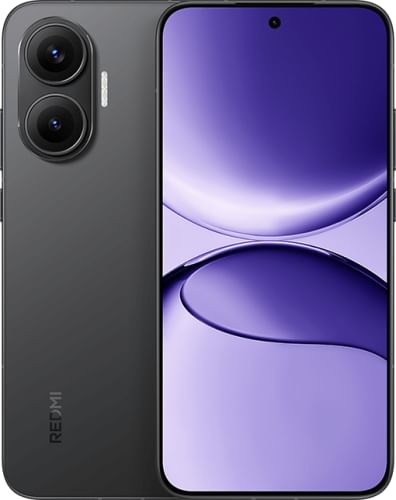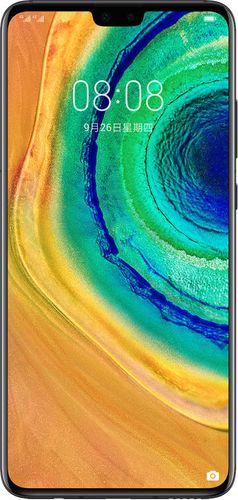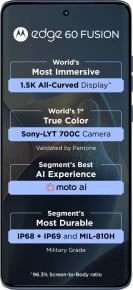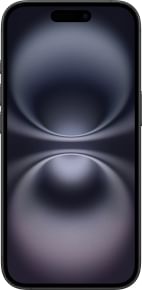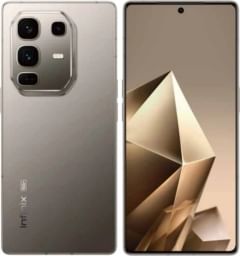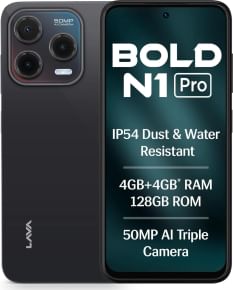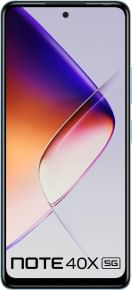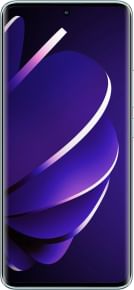Xiaomi Redmi Turbo 4 Pro vs Huawei Mate 30 (8GB RAM + 128GB)
Quick Comparison
Xiaomi Redmi Turbo 4 Pro has better RAM than Huawei Mate 30 (8GB RAM + 128GB). In terms of display resolution, Xiaomi Redmi Turbo 4 Pro has better resolution of 2772 x 1280 than Huawei Mate 30 (8GB RAM + 128GB) which has resolution of 2340 x 1080. Xiaomi Redmi Turbo 4 Pro has more internal memory than Huawei Mate 30 (8GB RAM + 128GB)
| Name | Xiaomi Redmi Turbo 4 Pro | Huawei Mate 30 (8GB RAM + 128GB) |
| RAM | 12 GB | 8 GB |
|---|---|---|
| Display | 6.83 in | 6.62 in |
| Internal Memory | 256 GB | 128 GB |
| Battery | 7550 mAh | 4200 mAh |
| Camera | 50 MP + 8 MP Dual | 40 MP + 16 MP + 8 MP Triple |
| Price | Rs. 23990 | Rs. 55837 |
Related Products
Detailed Comparison
Price And Launch
The launch Date of the first phone is April 24, 2025. The Expected cost of Xiaomi Redmi Turbo 4 Pro is Rs. 23990. The launch Date of the second phone is September 19, 2019. The cost of Huawei Mate 30 (8GB RAM + 128GB) is Rs. 55837.
Display comparison
Huawei Mate 30 (8GB RAM + 128GB) has screen size of 6.62 inches which falls short to Xiaomi Redmi Turbo 4 Pro's 6.83 inch screen. Xiaomi Redmi Turbo 4 Pro has AMOLED Screen type where as Huawei Mate 30 (8GB RAM + 128GB) has OLED Screen type. Xiaomi's phone has display density of 447 PPI & Huawei's phone has only 389 PPI display density. In terms of screen to body ratio, Xiaomi's phone has better screen to body ratio of ~ 90.2% than Huawei's phone ~ 87.9%. Xiaomi Redmi Turbo 4 Pro has 20.1:9 aspect ratio where as Huawei Mate 30 (8GB RAM + 128GB) has 19.5:9 aspect ratio.
Memory comparison
Xiaomi Redmi Turbo 4 Pro's larger 12 GB RAM is better for playing games and all with respect to Huawei Mate 30 (8GB RAM + 128GB)'s lower 8 GB RAM. Xiaomi Redmi Turbo 4 Pro has more Internal Memory (256 GB) than Huawei Mate 30 (8GB RAM + 128GB) (128 GB).
Camera comparison
Xiaomi Redmi Turbo 4 Pro's 50 MP + 8 MP Dual Rear Camera outshines Huawei Mate 30 (8GB RAM + 128GB)'s 40 MP + 16 MP + 8 MP Triple Rear Camera in terms of resolution. Huawei Mate 30 (8GB RAM + 128GB) will be better choice if you're looking to click lot of selfies as it has better 24 MP Front Camera in comparison to Xiaomi Redmi Turbo 4 Pro's 20 MP Front Camera.
Technical comparison
Both the phones has Android Operating System but the first one runs on version 15 and the second one on 10 version.
Related Comparisons
Full Comparison
| Name | Xiaomi Redmi Turbo 4 Pro | Huawei Mate 30 (8GB RAM + 128GB) |
| General | ||
| Model | 25053RT47C | Mate 30 |
| Sim Type | Dual Sim, GSM+GSM | Dual Sim, GSM+GSM (Hybrid Slot) |
| Dual Sim | Yes | Yes |
| Sim Size | Nano SIM | Nano SIM |
| Device Type | Smartphone | Smartphone |
| Release Date | April 24, 2025 | September 19, 2019 |
| Design | ||
| Dimensions | 77.9 x 163.1 x 8 mm | 76.1 x 160.8 x 8.4 mm |
| Weight | 219 g | 196 g |
| Bezel less | No | |
| Colors | Black, White, Green, Harry Potter edition | |
| Display | ||
| Type | Color AMOLED Screen (1B Colors) | Color OLED Screen (16M Colors) |
| Touch | Yes, 240 Hz Touch Sampling Rate | Yes |
| Size | 6.83 inches, 1280 x 2772 pixels, 120 Hz | 6.62 inches, 1080 x 2340 pixels |
| Aspect Ratio | 20.1:9 | 19.5:9 |
| PPI | ~ 447 PPI | ~ 389 PPI |
| Screen to Body Ratio | ~ 90.2% | ~ 87.9% |
| Glass Type | Corning Gorilla Glass Victus | |
| Brightness | 800 nits (typ), 1800 nits (HBM), 3200 nits (peak) | |
| Features | Dolby Vision, HDR10+, HDR Vivid | |
| Notch | Yes, Punch Hole | Yes, Water Drop Notch |
| Memory | ||
| RAM | 12 GB | 8 GB |
| RAM Type | LPDDR5X | |
| Expandable RAM | Upto 12 GB Extra Virtual RAM | |
| Storage | 256 GB | 128 GB |
| Storage Type | UFS 4.1 | |
| Card Slot | Yes, (Hybrid Slot), upto 256 GB | |
| Connectivity | ||
| GPRS | Yes | Yes |
| EDGE | Yes | Yes |
| 3G | Yes | Yes |
| 4G | Yes | Yes |
| 5G | Yes | |
| 5G Bands | SA:n38/40/41/77/78/1/3/5/8/28a, NSA:n38/40/41/77/78/1/3/5/8/28a | |
| VoLTE | Yes, Dual Stand-By | Yes, Dual Stand-By |
| Wifi | Yes, with wifi-hotspot | Yes, with wifi-hotspot |
| Wifi Version | Wi-Fi 7 | |
| Bluetooth | Yes, v5.4, A2DP, LE | Yes, v5.1, A2DP, aptX HD, LE |
| USB | Yes, USB-C v2.0 | Yes, USB-C v3.1 |
| USB Features | USB on-the-go | USB Tethering, USB on-the-go, USB Charging |
| IR Blaster | Yes | Yes |
| Performance | ||
| AnTuTu Score | 2,159,653 (Total) (v10) 465,908 (CPU) 937,663 (GPU) 430,955 (Memory) 325,127 (UX) | |
| Geekbench Score | 6,807 (Multi Core) (v6) 2,156 (Single Core) 13,464 (OpenCL) 18,779 (Vulkan) | |
| 3DMark Score | 4,649 (Wild Life Extreme) | |
| Extra | ||
| GPS | Yes, with A-GPS, GLONASS, GALILEO, BDS | Yes, with dual-band A-GPS, GLONASS, BDS, GALILEO, QZSS |
| Fingerprint Sensor | Yes, In Display | Yes, In Display |
| Face Unlock | Yes | Yes |
| Sensors | Accelerometer, Gyro, Proximity, Compass | Accelerometer, Gyro, Proximity, Barometer, Compass |
| 3.5mm Headphone Jack | No | Yes |
| NFC | Yes | Yes |
| Water Resistance | Yes, 2 m upto 30 min | No |
| IP Rating | IP68 | IP53 |
| Dust Resistant | Yes | |
| Camera | ||
| Rear Camera | 50 MP ƒ/1.5 (Wide Angle) 26mm (wide), 1/1.95", 0.8µm, PDAF, OIS 8 MP ƒ/2.2 (Ultra Wide) 15mm (ultrawide), 1/4.0", 1.12µm | 40 MP ƒ/1.8 (Wide Angle) 8 MP ƒ/2.4 (Telephoto) 16 MP ƒ/2.2 (Ultra Wide) |
| OIS | Yes | |
| Auto Focus | Yes | Yes |
| Features | HDR, Panorama | Leica Optics, Dual-tone , Panorama, HDR |
| Video Recording | 4K @ 60 fps UHD, 1080p @ 60 fps FHD | 2160p @ 30 fps UHD, 1080p @ 30 fps FHD, 720p @ 960 fps HD |
| Flash | Yes, LED | Yes, Dual LED |
| Front Camera | 20 MP ƒ/2.2 (Wide Angle) Punch Hole | 24 MP ƒ/2 |
| Front Video Recording | 1080p @ 30 fps FHD | 1080p @ 30 fps FHD |
| Technical | ||
| OS | Android v15 | Android v10 |
| Chipset | Qualcomm Snapdragon 8s Gen4 | HiSilicon Kirin 990 |
| CPU | 3.2 GHz, Octa Core Processor | 2.86 GHz, Octa Core Processor |
| Core Details | 1xCortex-X4@ 3.20 GHz & 3xCortex-A720@3.00 GHz& 2xA720 @2.80 GHz, & 2xA720@2.02 GHz | 2x2.86 GHz Cortex-A76 & 2x2.09 GHz Cortex-A76 & 4x1.86 GHz Cortex-A55 |
| GPU | Adreno 825 | Mali-G76 MP16 |
| Java | No | No |
| Browser | Yes | Yes, supports HTML5 |
| Multimedia | ||
| Yes | Yes | |
| Music | Yes | Yes |
| Video | Yes | Yes |
| FM Radio | No | No |
| Document Reader | Yes | Yes |
| Battery | ||
| Type | Non-Removable Battery | Non-Removable Battery |
| Size | 7550 mAh | 4200 mAh, Li-Po Battery |
| Fast Charging | Yes, 90W Fast charging | Yes |
| Wireless Charging | Yes | |
| Reverse Charging | Yes | Yes |
